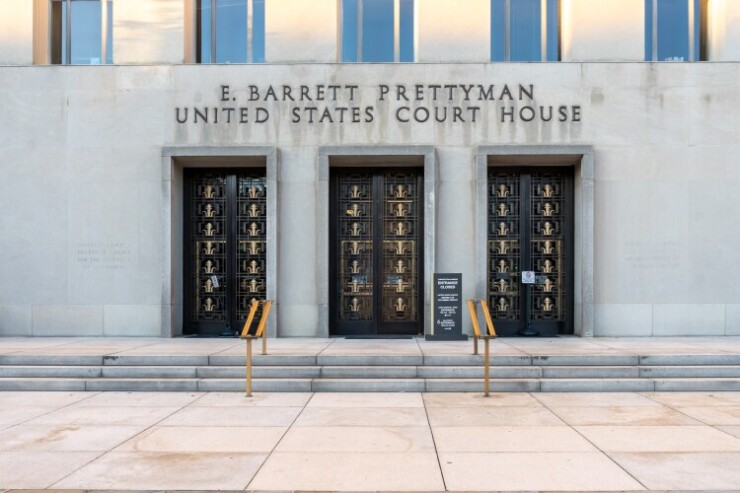A proposed crude oil-transporting Utah railway project, which would be financed with private-activity bonds, will officially lose key federal approval next week, following another legal setback this week.
The District of Columbia-based U.S. Appeals Court on Monday denied a request by the Uinta Basin Railway and Utah's Seven County Infrastructure Coalition for

As a result, the approval will be officially vacated Dec. 11, according to Ted Zukoski, a senior attorney at the Center for Biological Diversity, which along with Eagle County, Colorado, sued the federal board.
"Federal officials now have to go back to the drawing board and any science-based study will show they should scrap this dangerous oil train once and for all," Wendy Park, another senior attorney at the center, said in a statement. "It's a financial boondoggle and a climate bomb that threatens Gulf Coast communities and the water source for 40 million people."
The 86-mile rail line would extend from two terminus points in the Uinta Basin to connect with an existing Union Pacific line, providing a cheaper alternative to trucking for shipping waxy crude oil produced in the basin to Gulf Coast and other refineries.
Utah's Seven County Infrastructure Coalition launched a public-private partnership for the railway in 2019 with Drexel Hamilton Infrastructure Partners, the owner of the
Zukoski said the defendants could go back and address flaws in the project's environmental assessment or seek a review by the U.S. Supreme Court within 90 days.
The railway said it is still digesting the decision and making plans for the next step forward. Following the August court ruling, the railway said it was "ready, willing, and capable of working with the U.S. Surface Transportation Board to ensure additional reviews and the project's next steps proceed without further delay."
A Surface Transportation Board spokesman declined to comment.
Environmental groups and members of Congress from Colorado have raised concerns over the railway's potential harm to the Colorado River's headwaters, particularly in the wake of high–profile, toxic train derailments in other parts of the nation.





